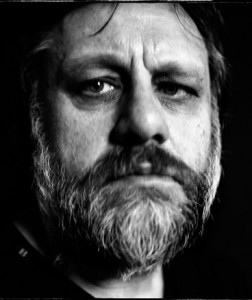After taking over a village in Vietnam, the Unites States Army decided to demonstrate its humanitarian intentions by employing its medics to inoculate the children of the village for polio. The military occupation didn't last, however, with the village re-captured by the Vietcong soon after. Upon reclaiming the territory, the Vietcong amputated the left arm of all the children who received the vaccination. One medial procedure counteracted by another.
 Slavoj Zizek and Colonel Kurtz tell this story that is probably distasteful and inhumane to those of us of a particular conscience. What might seem more inhumane, however, is that both Zizek and Kurtz tell the story in admiration of the Vietcong. In Kurtz's words:
Slavoj Zizek and Colonel Kurtz tell this story that is probably distasteful and inhumane to those of us of a particular conscience. What might seem more inhumane, however, is that both Zizek and Kurtz tell the story in admiration of the Vietcong. In Kurtz's words:"...the genius of that! The genius! The will to do that! Perfect, genuine, complete, crystalline, pure."
Zizek is not as gushing with his praise as the fictional colonel, but nevertheless sees in this act of the Vietcong the purity of genuine revolution:
"Although difficult to sustain as a literal model to follow, this thorough rejection of the Enemy precisely in its helping ‘humanitarian' aspect, no matter what the costs, has to be endorsed in its basic intention."
To compromise, so the thinking goes, is to be already dead. Better to enter village life with only one arm than to keep both at the cost of sacrificing your soul. The wisdom of this should be quite clear to those of us of a particular conscience.
By way of pigeon-holing, this story creates three types of Christians:
1) Christians who reject the vaccinations of the Empire
2) Christians who accept the vaccinations of the Empire
3) Christians who see it as their duty to administer the vaccinations of the Empire
Historically, has Christianity moved from (1) to (2) to (3), or has there been, from the beginning, a mixture of the three?
And for those of you who want to help me with my dissertation next year, what role does second-century apologetics have in this history? If you could keep your comment just below 9,000 words that would be particularly helpful.
